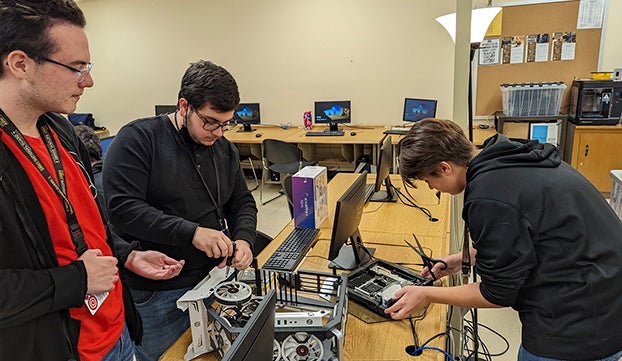LSC-O offers Maritime program
Published 8:52 am Wednesday, July 26, 2017
By Dawn Burleigh
The Orange Leader
With the increasing demands for maritime career qualified personal in the area, Lamar State College – Orange (LSC-O) is keeping up with the demand with Maritime Training this fall.
Captain Michael B. Miller, instructor and director of the program, has been a seaman most of his life.
“I was born into it,” Miller said. “My father was a harbor pilot.”
Miller said moving to LSC-O is like returning home. He graduated in Beaumont.
He also attended Texas A&M in Galveston and was on the seas until 2000 when he retired early.
Officially the process to start the program began in Sept. 2017. The school received approval from the Coast Guard in Dec. 2016 as Miller was working on the curriculum for the program.
“Every five years, captains, engineers are required to have a refresher training,” Miller said. “This program will be able to provide that requirement.”
The first class was offered in late May, early June for Tankermen and PIC (Person in Charge).
Miller said the joys of working at sea for him was the time off.
“Most ships, everyday at seas is a day home with pay,” Miller said. “So there is a four month rotation and I would try to be off during King fishing and deer season.”
He said it suited his lifestyle, especially after his sons were born.
As the youngest captain at almost every company he worked for, he was a captain by age 28 and unlimited tonnage master at 28.
“I learned a lot more on ships sailing than in the classroom, through the experience of others,” Miller said. “I want to improve that in my class. Students learn differently. Some are hands on, some visual and audio.”
Currently, the program is a ‘continue education’ program with required certificates but with plans to expand to offer more.
“The tools to advance for deck hands or entry level is there,” Miller said. “Deckhand to Captain in five years is possible. Times differ for brown water.”
Brown water is fresh water or rivers.
Graduates will be able to work anywhere on any vessel and not be restricted to tugboats.
The training standards are set by International Maritime Organization and approved by the United States Coast Guard.
One reason to consider a career in maritime is less than one percent of the workforce is in their 20s. With over half of the workers, in 2015, close to retirement age, a demand for qualified mariners is increasing.
Wages for an tug or barge deckhand working for in inland service can start at $100 -$125 per day. A Master/Captain for an inland service starts at $525 per day. Wages increase as the more time is required off shore at a time.





